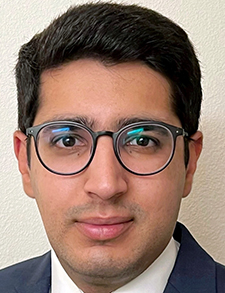Clinical question: Is indefinite anticoagulation beneficial for patients with a first unprovoked venous thromboembolism (VTE) after initial treatment?

Dr. Sheikh
Background: VTE is a chronic, recurrent condition with significant health care costs. While guidelines recommend indefinite anticoagulation for a first unprovoked VTE, the balance between benefits and harms remains debated.
Study design: Markov modeling study
Setting: Canadian health care public payer perspective
Synopsis: In a hypothetical cohort of 1,000 patients aged 55 years with a first unprovoked VTE, indefinite anticoagulation using direct oral anticoagulants was assessed. The results showed that while indefinite anticoagulation prevented 368 recurrent VTE events, including 14 fatal pulmonary emboli, it also led to 114 major bleeding events, with 30 intracranial hemorrhages and 11 bleeding-related deaths. The intervention cost an additional CAD $16,014 per person without increasing quality-adjusted life-years. The study’s outcomes were particularly sensitive to the case-fatality rate of major bleeding and the annual risk for major bleeding during extended anticoagulation. The study’s generalizability is limited by its focus on a specific population of patients (55-year-olds with a first unprovoked VTE) and its use of a Markov modeling approach.
Hospitalists should engage patients in shared decision-making to determine the optimal duration of anticoagulation for patients with a first unprovoked VTE, carefully weighing the potential risks and benefits of indefinite anticoagulation.
Bottom line: Indefinite anticoagulation for the first unprovoked VTE presents a complex benefit-harm tradeoff. Shared decision-making, incorporating individual patient preferences, is crucial when considering treatment duration for unprovoked VTE.
Citation: Khan F, et al. Indefinite anticoagulant therapy for first unprovoked venous thromboembolism: A cost-effectiveness study. Ann Intern Med. 2023;176(7):949-60.
Dr. Sheikh is the associate program director, department of internal medicine, and assistant professor, division of hospital medicine, at the University of New Mexico, Albuquerque, N.M.